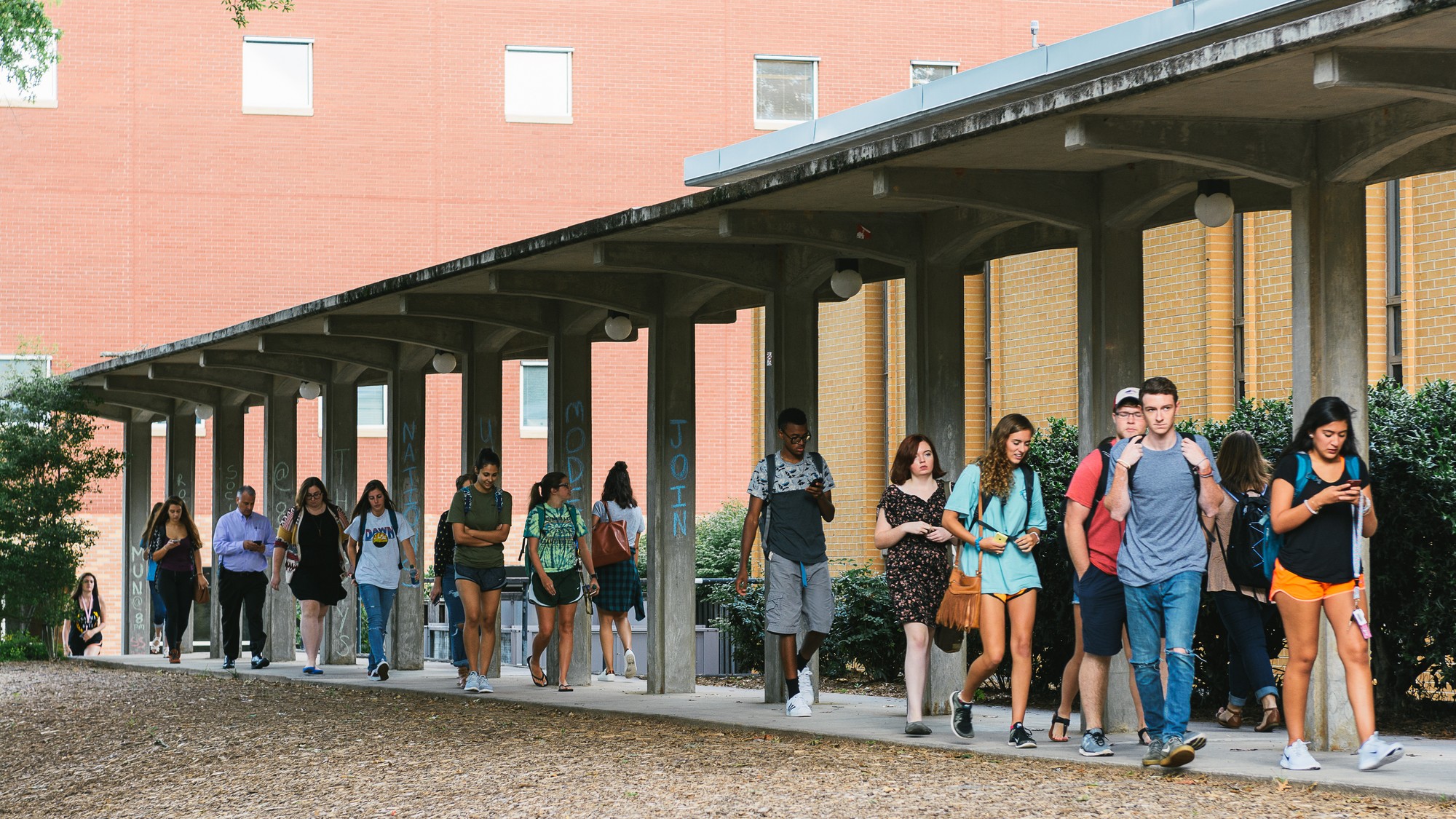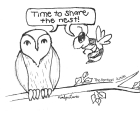Social anxiety and social media circle around each other like partners in a swing dance competition.
While not synonymous, the two phrases engage a similar query to “Which came first, the chicken or the egg?” because multitasking and a compulsion to check-in online more and more often means we are checking out.
According to a study published in February 2013, by Alzahabi, Becker and Hopwood, increased media multitasking and higher symptoms of anxiety and depression are “associated.” Meaning the question of whether or not one causes the other hangs in the balance, waiting for further study.
Two types of student walk around the halls on the first day of classes: those with faces firmly planted in laptop, iPad or smartphone screens and those who carelessly attempt to look casual as they try to find their classrooms.
Are we addicted to staying social or are we dropping out of real-world engagement in exchange for the comfort of a screen separating us from strangers’ eyes in the hallways? What did people do before the Internet? Bowling.
Melissa Clawson, a therapist working with Ray of Hope Online Resources & Consulting says that addicted to social media is increasing.
“Social media has become very addictive in adults as well as adolescents,” Clawson said. “Although it has provided a link to stay in touch with fam-ily and friends on a daily basis to share the details of ones life, it has also provided a ‘wedge’ amongst personal relationships.”
Clawson further explained that addictive behavior in checking Facebook creates“an inability to communicate with others face to face,” and that allows—in a socially acceptable way—people to “disconnect from their surroundings,” she said.
According to Thomas Rich- ards, Ph.D., of The Social Anxiety Institute, social anxiety is the third largest psychological problem in the United States and the ability to “connect” to friends and family through a screen lessens the feelings of interacting in person, which actually makes the anxiety worse.
“People are using social media to ‘unwind’ at the end of the day, but in turn it has increased anxiety symptoms of worry and fear that one could have missed an event,” Clawson said.
So we should consider carefully the method to our madness. Are we avoiding reality while scrolling through funny pictures and distracting ourselves from creativity? Are we sinking further into a depression or desperately try- ing to recreate ourselves as the characters we want to be? Next time you check in make sure you’re not checking out or feed- ing anxiety. Remember, people existed without the Internet and without being constantly- connected.
Ellen Eldridge, Senior
Communication Major



